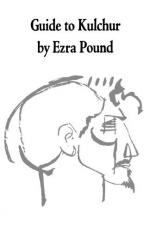
|
| Name: _________________________ | Period: ___________________ |
This test consists of 15 multiple choice questions and 5 short answer questions.
Multiple Choice Questions
1. According to Pound, who was the last of the philosophers to really "get hold of something" and among the last to worry about reconciling churches?
(a) Descartes.
(b) Aristotle.
(c) Liebniz.
(d) Holmes.
2. Civilization involves a sound balance of what?
(a) Arts and science.
(b) Education.
(c) People.
(d) Values.
3. What essay is noted by the author to be dry, but that something worthwhile can come from reading it?
(a) "The New Learning Part One."
(b) "Digest of the Analects."
(c) "Sparta 776 B.C."
(d) "Totalitarian."
4. What author does the author deal with in "Monumental?"
(a) James Joyce.
(b) Himself.
(c) Franz Kafka.
(d) T. S. Eliot.
5. In whose work does the idea of the vortex lie?
(a) Plato.
(b) Leibniz.
(c) Gaudier-Brzeska.
(d) Descartes.
6. Who does Pound say was wise to oppose usury?
(a) Jefferson.
(b) Washington.
(c) Lincoln.
(d) Adams.
7. Who is commended in "The History of Philosophy Is ...?"
(a) Aristotle.
(b) Nietzsche.
(c) Descartes.
(d) Plato.
8. Which sort of ideas are the men of today almost exclusively concerned with, according to Pound?
(a) Ideas that guide action and serve as rules of conduct.
(b) Ideas that guide action and serve as rules of conduct.
(c) Ideas that are meant to lead culture to evolve.
(d) Ideas that do not actually exist.
9. Pound describes the "Tempio Malatestiano" as both an apex and a(n) ______.
(a) Stereotype.
(b) Failure.
(c) Innovation.
(d) Travesty.
10. "Europe or The Setting" opens with a discussion of European what?
(a) Paintings.
(b) Writings.
(c) Composers.
(d) Philosophy.
11. "Great Bass: Part One" focuses on the ______ an ear can hear.
(a) Smallest vibrations.
(b) Highest noises.
(c) Lowest noises.
(d) Largest combination of frequencies.
12. How does real knowledge go into men, according to the author?
(a) All at once.
(b) Through experience.
(c) In tidbits.
(d) From birth.
13. How many pages is "Italy?"
(a) Seven.
(b) One.
(c) Three.
(d) Two.
14. Who is the author walking through a range of different artists in "Guide?"
(a) The uneducated.
(b) The products of American artists.
(c) Historians.
(d) Sociologists.
15. The author says discoveries are made by men who can what?
(a) Endure.
(b) Study.
(c) Understand.
(d) Listen.
Short Answer Questions
1. What did the author experience after finishing the book addressed in "Monumental?"
2. What kind of minds are of great value, especially in a rotted milieu?
3. What book does the author discuss in "Monumental?"
4. How many essays are contained in Section I?
5. What is the first sort of idea addressed in "The New Learning Part One?"
|
This section contains 408 words (approx. 2 pages at 300 words per page) |

|




